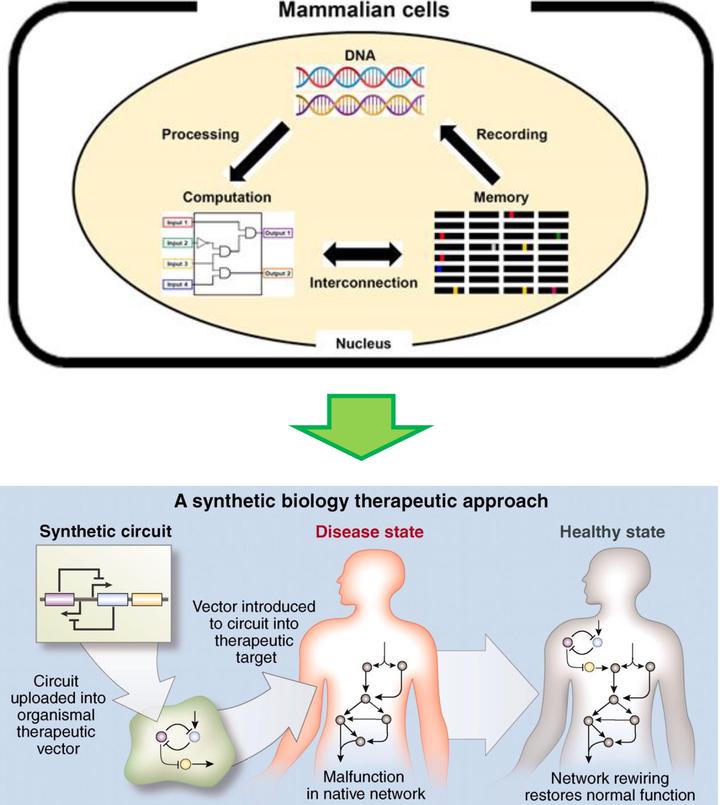Synthetic Cardiology
 Modified from Ruder WC, et al. Science, 2011;333:1248-1252.
Modified from Ruder WC, et al. Science, 2011;333:1248-1252.Synthetic biology is a multidisciplinary research area that designs and creates new sense-and-respond capabilities into living cells. The development of regulatory elements, molecular computing devices, and effector screening technologies has enabled researchers to design synthetic gene circuits in many organisms, including mammalian cells (Curr Opin Biotechnol, 2017; ACS Synth Biol, 2019). Synthetic gene circuits enable living cells to compute information, store memory, and have programmable behaviors that respond to dynamically to multiple inputs. For example, we have developed novel single-nucleotide-resolution computing and memory devices in bacteria and mammalian cells, that perform logic operations based on past events, by making use of CRISPR technologies (Mol Cell, 2019).
Human diseases are caused by dysregulation of cellular biological programs that are encoded in DNA. Unveiling the endogenous programs and encoding new programs into the genome are key to creating novel diagnostic and therapeutic strategies.
In this project, we will design and create “living machines” for automatic reversal of aging phenotypes and maintenance of homeostasis, in especially, but not limited to, cardiovascular medicine. We are developing various bio-computation systems as gene and cell therapies, that enable multi-sensing and multivariate analysis in living cells.
Currently, major gaps still remain between laboratory demonstrations and real-world use in Synthetic Biology. We believe that transdisciplinary research with teams of engineers and clinicians may help to bridge laboratory findings into translational efforts and ultimately clinical practice for this exciting new therapeutic approach.